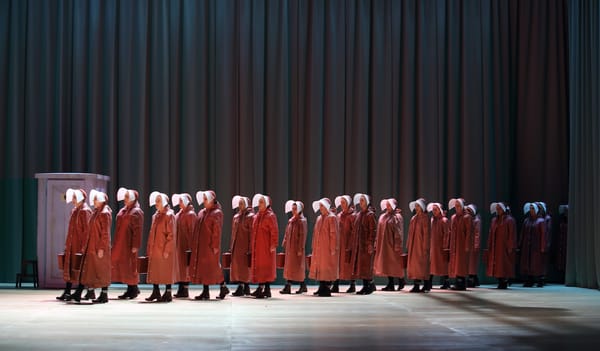A drawn-out American get together
Explore the familial dysfunction in a 'scientific' American family for a change.

The Fever Syndrome
★★
- What: Drama
- Where: Hampstead Theatre
- When: Until 30th April 2022
- Cost: From £10
The Fever Syndrome: Written by Alexis Zegermen and directed by Roxanna Silbert is currently showing on the main stage at the Hampstead Theatre, and the offering: Observing a dysfunctional American family, with a LOT going on! The play follows the Myers family, not your run-of-the-mill American family, as they discuss money, science, and air their troubles over the course of a little under a day!
The characters of this family are rooted deep in stereotypes of the science and cultural milieu that personifies the East Coast. Prof Richard Myers (Robert Lindsay), the proudly Met loving New York scientist who pioneered IVF research, who along with his third wife Megan (Alexandra Gilbreath) hosts their three children on the eve of Myer’s acceptance speech for his recent Lasker award (the 'American Nobel' for medicine).
Dorothea (Lisa Dillon), the eldest sibling is a scientist herself (and on the board of Science) with a teenage daughter (Nancy Allsop) suffering from a rare genetic disease (The eponymous Fever Syndrome). The twins, Thomas (Alex Waldmann) and Anthony (Sam Marks) are a pair of eccentric unsure men, who just like Dorothea cling to their towering father for recognition and affirmation every step of the way.
Home for a dinner and just under a day, we watch this family implode over trivialities as the bottled-up anger rises to the foray, unleashing unresolved childhood trauma. There are some very well thought out themes of such dysfunction within the play, but there is one too many squeezed in--even for a play over 2 hours long—for them to be anything more than side notes and catch phrases.
The story struggles to find space for any of the themes inherited. We buoy from having discussed cryptocurrency and investment options one minute, to a failed marriage proposal, and, just minutes later, are forced to accept a poignant reconciliation! And it is not just the siblings who have issues, but Richard Myers himself, who under the throws of Parkinsons has fleeting visions of his teenage daughter tormenting him for, presumably, failing to be a better father. Individually these elements work and seem plausible but the lack of baggage in the emotional weight of the characters between one scene and another makes the whole play seem disjointed and improbable!
In the acting department, Robert Lindsay provides a standout performance as the patriarch of the Myers’ family. A pioneer of the IVF technology, who amongst other things, in his spare time enjoys GOP bashing, mixing up tunes to inappropriate inside jokes about his son-in-law, and shuttling between being an absent father to a perfect one who knows exactly what to say at the right moments.
Having science feature prominently in a play is always a tricky endeavour! To pull it off successfully with engagement needs a lot of exposition — while the play has enough of it, it unfortunately seems to
have been largely landed down on the shoulders of Nathaniel Cooper, Dorothea’s husband (played by Bo Poraj) giving his character little to do otherwise!
The set design, one of the most elaborate in recent times at the Hampstead Theatre, is intricate, detailed, and grand! Featuring a profile view of three stories of a New York apartment, it allows us to observe the drama unfolding within the family, one room and one sibling at a time. In the foreground is a dinner table, a couch, and a piano forte for Myers to dish out Chopin, overall, more real estate than the average zone 1 London apartment. The lighting in particular is stellar considering how most of these rooms are boarded up on three sides and the audience gets an extremely limited vista into these quarters.
With an otherwise generic plot of a dysfunctional family - the play is moderately tame and beaten! But for £10 it is hard to feel to walk away disappointed, especially given the stellar performances and the amazing set design — if anything it gives enough food for thought for us STEM students on the difficulties integrating science into a popular medium!







